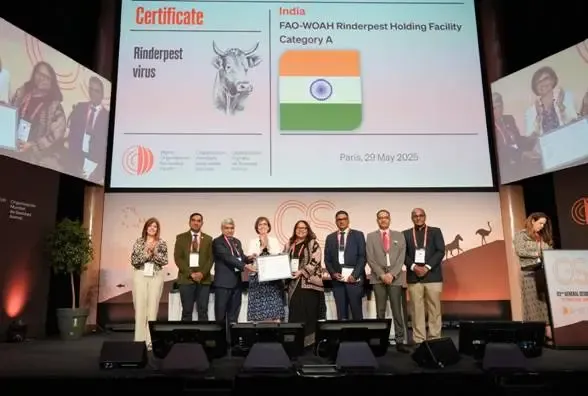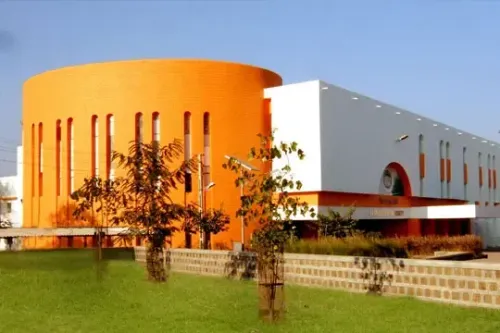Is ICAR-NIHSAD Bhopal Now a Designated Containment Facility for Rinderpest Virus?

Synopsis
Key Takeaways
- ICAR-NIHSAD is now a designated Category A RHF for Rinderpest.
- India's commitment to global animal health is reinforced.
- Strict biosafety measures are in place at the facility.
- India's role in biosecurity is significant on a global scale.
- Future engagements may lead to a Category B designation.
New Delhi, June 16 (NationPress) The ICAR-National Institute of High-Security Animal Diseases (NIHSAD), located in Bhopal, has received the designation of a Category A Rinderpest or cattle plague Holding Facility (RHF) from the World Organisation for Animal Health (WOAH) and the Food and Agriculture Organization (FAO) of the United Nations, as announced by the Ministry of Fisheries, Animal Husbandry & Dairying on Monday.
Rinderpest, historically referred to as “cattle plague,” was one of the most devastating livestock diseases until its global eradication in 2011.
“This recognition marks a significant achievement for India in the field of global animal health and biosecurity,” stated the Ministry.
The Rinderpest Virus-Containing Material (RVCM) continues to exist in a few laboratories, presenting potential risks if it were to be released.
To maintain global freedom from the disease, the FAO and WOAH have enforced stringent measures to restrict the storage of RVCM to a limited number of high-security laboratories globally.
In adherence to this global effort, India designated ICAR-NIHSAD, a high-containment BSL-3 facility and WOAH reference laboratory for avian influenza, as its national repository for RVCM in 2012.
India formally requested RHF status in 2019, and a joint inspection was carried out in March 2025 by international experts appointed by the FAO and WOAH.
After a thorough assessment, the institute has been officially recognized as a Category A RHF for a one-year period due to its robust biosafety measures, effective inventory management, and emergency preparedness.
This announcement was made at the 92nd General Session of WOAH held in Paris on May 29. India’s delegation, led by Alka Upadhyaya, Secretary of the Department of Animal Husbandry and Dairying (DAHD), was formally presented with the designation certificate by the Director General and President of WOAH.
“This recognition positions India among an elite group of only six facilities worldwide entrusted with the critical responsibility of securely holding rinderpest virus material,” the Ministry remarked.
It underscores India’s crucial role in global animal health, biosecurity, and the One Health framework.
“India’s contribution to the eradication of rinderpest was monumental. Today, its role in preserving that legacy is equally crucial. This recognition transcends containment; it embodies responsibility and readiness,” stated Upadhyaya.
The committee also encouraged India to further engage in discussions related to vaccine seed material, which will enhance its prospects for a Category B designation in the future.
The designation of ICAR-NIHSAD as a Category A RHF is a testament to India’s ongoing leadership in protecting global animal health and reflects the country’s steadfast commitment to international disease control and prevention standards.










